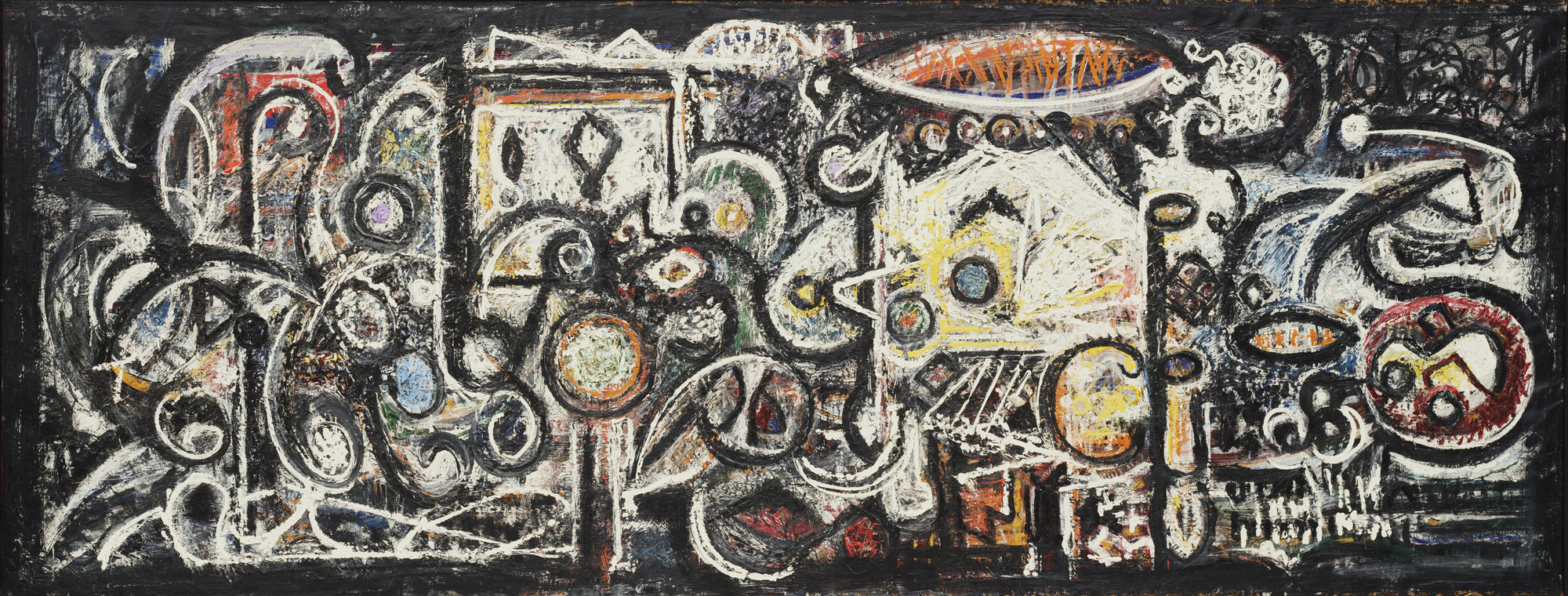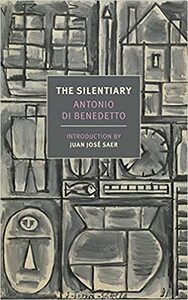Take a photo of a barcode or cover
Delightful righting style, okay story. Will be checking out his other works!!
dark
mysterious
reflective
medium-paced
challenging
funny
reflective
tense
slow-paced
Plot or Character Driven:
Character
Strong character development:
No
Loveable characters:
No
Diverse cast of characters:
No
Flaws of characters a main focus:
Yes
Di Benedetto writes in such a subtly humorous way that it catches you off guard when you find yourself laughing at this book. it reminds me a lot of Kafka, or Gogol, especially because the ending of this book suddenly sharpens with meaning, coming to a very bleak close.
medium-paced
In the end, they both died in their own way, with one having truly lived and the other missing everything that was offered to him. To truly live you have to embrace the chaos head on, not run from every noise of the world around us.
hopeful
reflective
sad
medium-paced
Plot or Character Driven:
Character
Loveable characters:
Complicated
Flaws of characters a main focus:
Complicated
3.5. kinda relateable--i too have misophonia and hate noises. But not enough to chase me across neighborhoods and blow shit up.
A compelling narrative of a troubled man seeking relief from the city’s cacophony, to which he becomes increasingly intolerant and willing to try ever more innovative measures, much to the chagrin and annoyance of his family and neighbors. In delving into the protagonist’s mindset, the author gradually leads the reader into a labyrinth of reality, dreams, and visions, that are skillfully merged into an altered reality through the authors use of stark and somewhat fragmented prose.

The Silentiary - Antonio Di Benedetto's title had me running to the dictionary. From what I was able to find, silentiary refers to a maker of silence, an observer of silence or an advocate of silence.
Considering the barrage of noise raining down on the novel's unnamed narrator/protagonist, by process of elimination (so much noise he isn't in a position to make silence or observes silence), he's left with being an advocate of silence.
Poor guy. On the first page a bus leaves its motor running right outside his bedroom window. The noise hardly lets up in the novel's 150 pages - and all the noise drives De Silentio crazy. Johannes de silentio served as one of Kierkegaard's pseudonyms and I'll give half his name to our tale's narrator.
Originally published in 1964, The Silentiary easily qualifies as unique and one-of-a-kind. Juan José Saer notes in his essay included in this New York Review Books edition: "But while certain themes in Di Benedetto's work have an affinity with those of existentialism - the ghosts of Kierkegaard, Schopenhauer, and Camus drift along the back of the stage from time to time - the prose that discreetly distributes them across the page has neither precursors nor successors."
The author frames his tale thusly: We're in an unnamed Latin American city in the 1950s. De Silentio works as a manager's assistant in an office but aspires to be a writer. As a first step, De Silentio needs to get away from all the harsh city noise so he can concentrate. Not easy, especially since he must take into account his mother and his wife. He comes up with something simple for starters: he'll write a detective novel where he himself will assume the role of criminal, and, as criminal, he'll plan the murder of someone he knows.
Again, distinctive storytelling. The tale heats up halfway in. To share a flavor of what a reader will encounter, here's a batch of direct quotes along with my comments:
“Noise has become the sign or symbol of all that is now, all that is new, all that possess weight and validity; the rupture.”
The mushrooming of cities across the globe happened in the first half of the twentieth century. By the 1950s, many thousands of cars, buses and trucks came to dominate every aspect of city life. A near intolerable level of noise and stench and ugliness simply became the given.
“Therefore, eminent spirits – Kant, Goethe, Lichtenberg, Jean-Paul - have always shown an extreme dislike to disturbance in any form. Above all have they been averse to that violent interruption that comes from noise. Ordinary people are not much put out by anything of the sort.”
De Silentio quotes German philosopher Arthur Schopenhauer here. Sad fact: Most people don't register noise – motors can rumble, sirens can blare, music can screech and the general population barely notices. However, De Silentio possesses a deep artistic sensitivity and, like Norwegian explorer Ering Kagge, he has a primordial need for silence.
One of the key themes of existentialism: a sense of alienation from society and from other people. De Silentio's wife Nina fears silence and solitude; she clamors to fill her world with sound, especially radio music. And Nina's fear is an expression of modern culture: silence has become the dreaded enemy. The last thing people want is to discover or come in contact with a deeper level of life that opens up via silence and solitude.
“Like everyone else, we had a television set, though like very few people, we used it with discretion.”
Antonio Di Benedetto displays keen insight - the 1950s inaugurated the age of television where television shows became central to the lives of an entire population. De Silentio wants to write a novel. Fortunately he and his wife bring a measure of discretion to their TV viewing – without discretion, the television could remain on and our novelist in the making could spend years with his ass plopped in front of the boob tube, his desire to write a novel reduced to a faint memory.
Sidebar: In all the dozens of existential novels I've read by authors like Jean-Paul Sartre, Albert Camus, André Malraux, Georges Simenon, I can't recall even the mention of television.
“Machines are useful. Their noise is not, and still less so when amplified or uncontrolled. At present, machine noise is neither moderated nor controlled nor suppressed. It produces the euphoria of power in those who generate it.”
Bullseye, De Silentio! To inflict your noise on others is a form of aggression and power. If anybody doubts this, think back to when you were subjected to the roar of a motorcycle.
There's also a curious philosophic dimension at play. As Esther Allen writes in her Translator's Afterward, John Cage told Morton Feldmann, his friend a fellow composer, that he shouldn't complain about the noises in the environment, explaining, in effect, that he (Morton) wants to impose his thoughts on the outside world so why shouldn't the outside world have the right to impose itself on him?
“My novel will have a crime and various suspects, but I myself, the author, will remain unaware of who the criminal is. That way the book can be prolonged indefinitely, until the crime it once was about has been entirely forgotten."
De Silentio goes on to spin other possibilities for his novel. I kept wondering if The Silentiary itself could count as one possible iteration.
Antonio Di Benedetto incorporates several other provocative themes in The Silentiary. I highly recommend picking up a copy. Perhaps you will also be moved to read the author's classic, Zama, likewise available thanks to New York Review Books.
Argentina's Antonio Di Benedetto, 1922-1986




